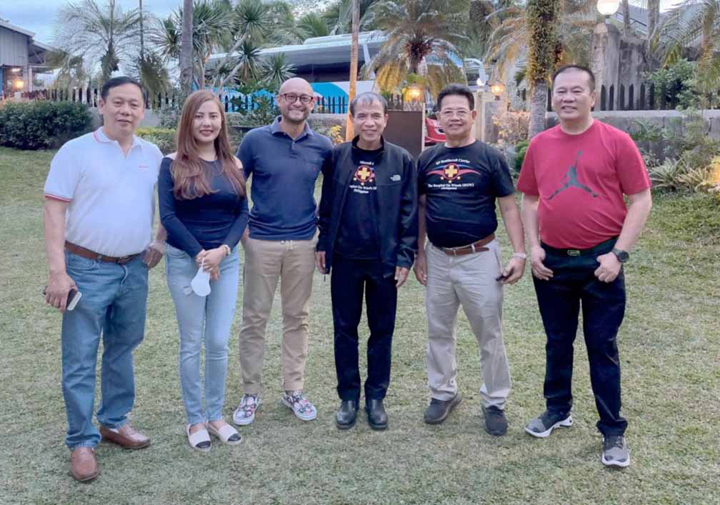ENTERPRISES and establishments that provide water, food, consumer and animal products must strictly adhere to quality and safety standards required in listing and operating their businesses with the reopening of the economy, and high risk of contamination at the onset of summer season, according to a top Filipino chemist.
This call was issued by Pinky Pe Tobiano, who is now part of the Board of Directors of Qualibet-BVAQ, the joint venture (JV) between homegrown lab company Qualibet and the merger of global leader Bureau Veritas (BV) and New Zealand’s premier food assurance business AsureQuality (AQ), given the rising complaints of consumers against various entities that offer questionable products and services that are detrimental to health and may even cost lives.
Proof of which are items under dispute or controversial ones with complaints for recall that undergo testing in their ISO-certified laboratory in Quezon City.
“We’re handling samples from Food and Drug Administration (FDA), Department of Health (DOH), and Bureau of Animal Industry (BAI),” she told reporters during a recent press tour of their facility.
‘Quality is Better’
GUIDED by this thrust, which is short for Qualibet, the lab was established in 2006, providing reliable and truthful chemical and microbiology analysis of cosmetics, food, water and pharmaceutical and veterinary medicines. These products undergo testing for quality and safety compliance either for registry or dispute.
Without showing the brands to the media due to non-disclosure agreements, some of the confiscated products with issues that were handed to them by such regulatory bodies include beauty items like lead-laden lipsticks and a cheap underarm whitening cream reported to have caused so much deaths for heavy mercury content. She noted: “It is a very strong brand. It’s all over Tiktok now. So it’s a targeted market”
For food safety, there are peanut brittle, pastillas, coffee, malunggay tea, banana and camote chips, honey butter, herbal food supplement, salabat, and garlic powder—all unregistered with the FDA.
“These are the [offerings of small and medium enterprises or SMEs] that thrived during the pandemic. Unfortunately, a lot of them were submitted to the FDA, and we have found heavy pathogen contamination,” Tobiano said.
Before they put their products out in the market, Qualibet-BVAQ can do shelf life analysis and help them make the needed nutrition facts used in packaging. The lab also counts the salmonella and e-coli, as well as gives advice on good business practices.
The JV firm is, likewise, helpful for exporters. In fact, there are six local brands of dried mangoes being sold already abroad, according to her.
“Because now Qualibet is Qualibet-BVAQ, our certificate of analysis is already a global standard. That is the difference of Qualibet-BVAQ. We are no longer a signature. We’re now an autograph, helping a lot of SMEs,” she explained.
For veterinary, the facility tests the animals for contamination. It’s also strong in handling pet food, with some found to be substandard. What’s more, food safety applications of pharmaceutical, food and beverage (F&B), and hotel and restaurant industries are processed here.
“One of the biggest contaminations in a restaurant is in the knives they use,” Tobiano said, adding cooking utensils and unsterilized food containers are detected to be unsafe following their periodic random swabbing. “A lot of cold brew, unfortunately, are really high in pathogen.”
Controversial cases in the restaurant scene that Qualibet-BVAQ has handled include the latest e-coli outbreak in hamburgers and tacos, as well as the recent food poisoning concerning a famous Oyster bistro in Makati, per the top executive.
She also pointed out that a lot of bottled sauces sold in bazaars have been positive with salmonella.
“These are the products that need help,” Tobiano said, while citing some other services they provide, such as developing good kitchen standards, sanitation and housekeeping procedures, and the Hazard Analysis and Critical Control Point or HACCP accreditation.
Apart from these establishments, water refilling stations and ice manufacturing plants, a lot of real estate developers tap Qualibet-BVAQ to help them monitor the water safety in their projects like condominium, office and commercial buildings.
This is because highly dense areas like them are so prone to water pathogens or contaminants.
People living or working in these developments are very exposed since “the higher [floors] you go, the higher is your risk, unless the building administrator really test their water [that is also a] part of compliance,” she explained.
Low compliance awareness
TOBIANO observed the strong interest of businesses in the country to enlist their entities, but there’s still a “need to increase [their] awareness on where to go and how to get it done.”
“It’s good to have a product as long as it follows quality and safety standards in order to register it,” she said, while citing that the FDA, DOH, Department of Agriculture and its attached agency BAI are “doing a very good job” in pushing their conformity to regulatory requirements.
“It’s just like P5,000 to P10,000 [per testing], so you would know your [product’s] nutrition facts, and you can have the bacterial or the pathogen counted, which are parts of the compliance to the FDA. That’s just a small investment for a long-term business,” she stressed.


























